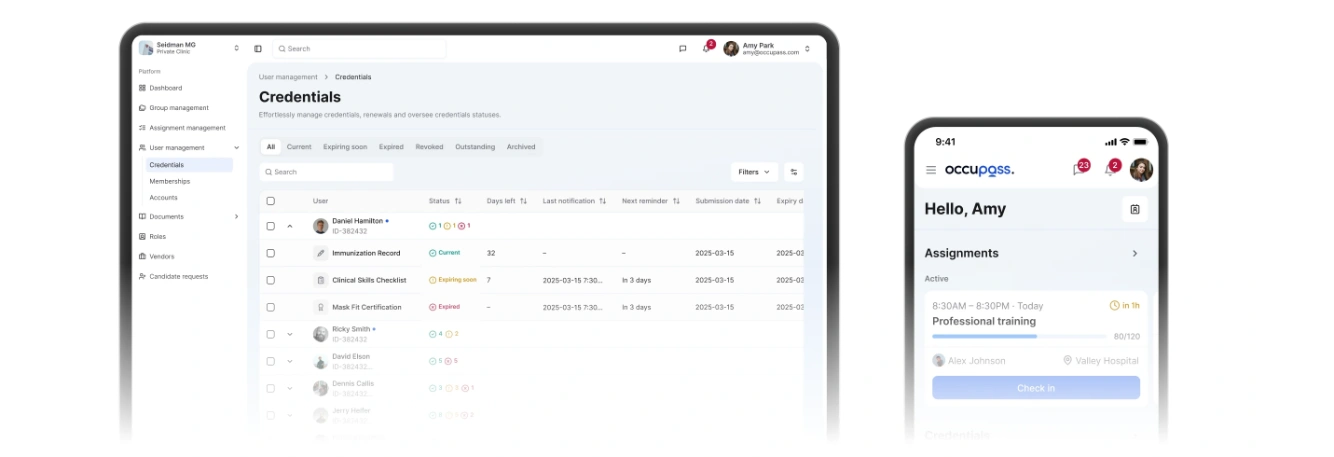One platform that connects every stakeholder,
every process, every outcome
Occupass: a unified space where information is clear, accessible, and consistent, removing silos and allowing stakeholders to know what action is required,
when to take it, and why it matters
One longitudinal record per individual that aggregates everything, reusable across organizations and jurisdictions.
Credentials can be issued, verified, and updated by trusted sources instead of self-reported uploads.
From pre-admission requirements to advanced certifications, every step is recorded against the same passport.
Credentials are structured so they can align with multiple frameworks without re-work.
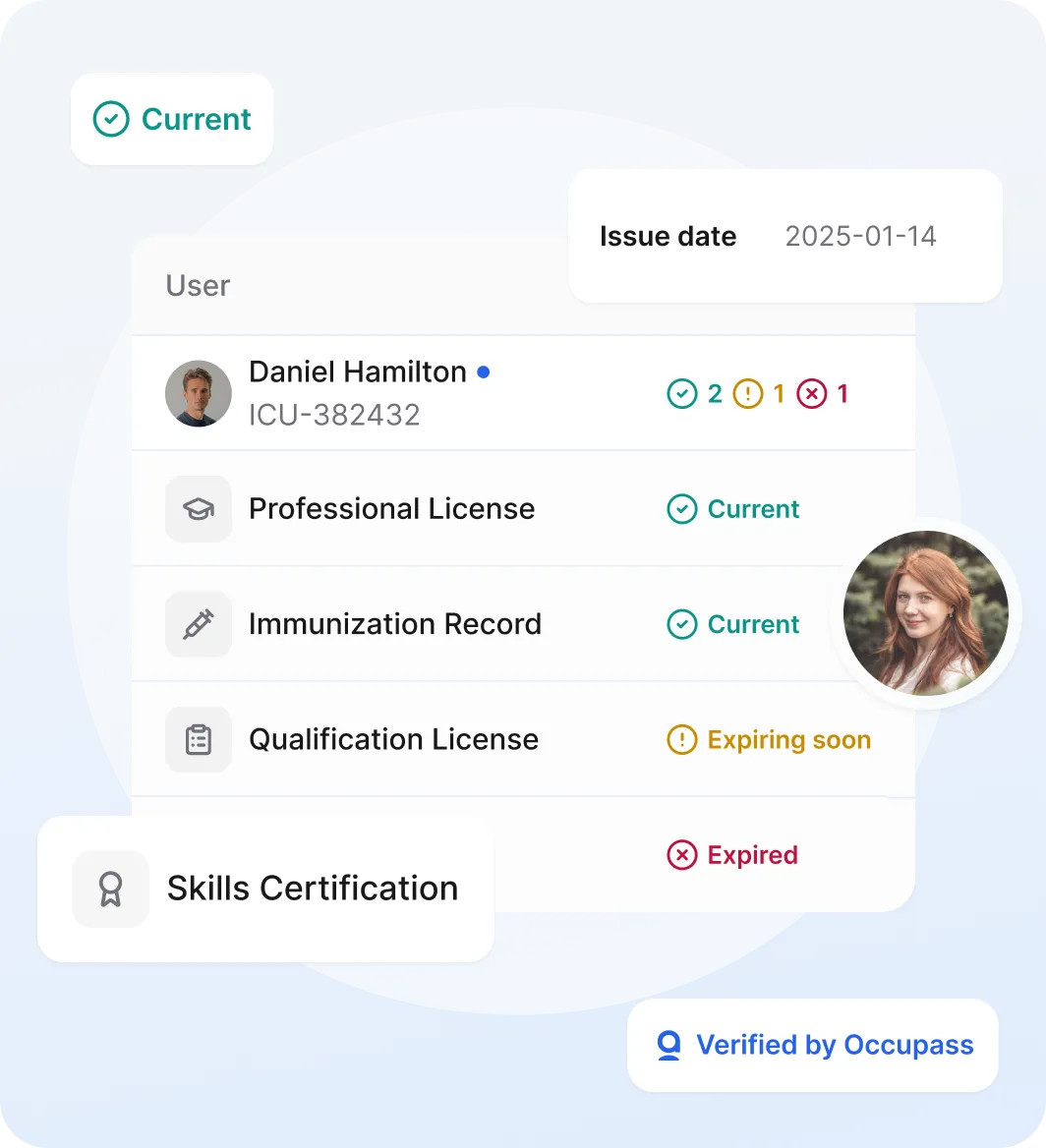
Configurable rulesets link each role to the exact credentials, hours, and clearances required to participate.
The platform converts passport data into live “clear / pending / not eligible” status for workers, cohorts, units, and locations.
Every credential, decision, and change is time-stamped and traceable, simplifying reviews and regulatory reporting.
Upcoming expiries, missing requirements, and non-compliant assignments are detected early.
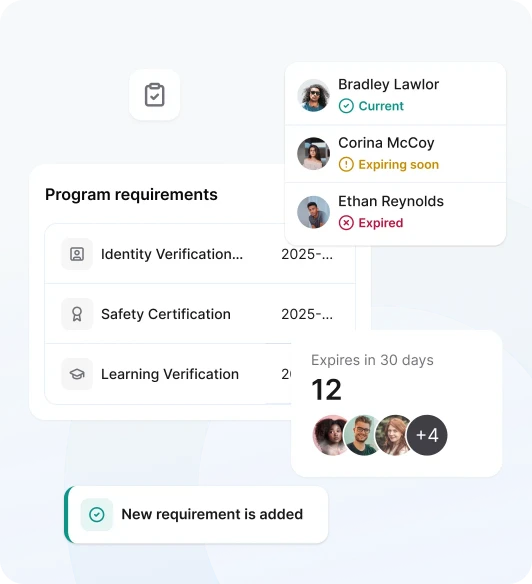
Assignments and placements are matched to individuals using verified credentials, compliance status, and site capacity.
Institutions, training providers, employers, and sites work from shared data and standardized workflows.
Coordinators see real-time availability, demand, site limits, to make informed allocation decisions.
Progress through training, competencies, hours, and milestones is tracked so upcoming assignments align.
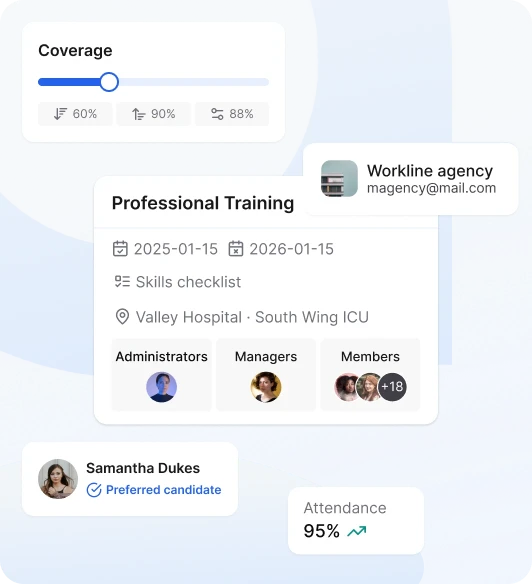
Each stakeholder sees a customized view pulled directly from the same passport data.
Automated alerts and task lists highlight expiries and upcoming shifts to keep responsibilities clear.
All necessary parties stay informed and aligned, with platform-driven updates ensuring the right moments.
All messaging, updates, and decisions are centralized around the relevant records and eliminating fragmented channels.
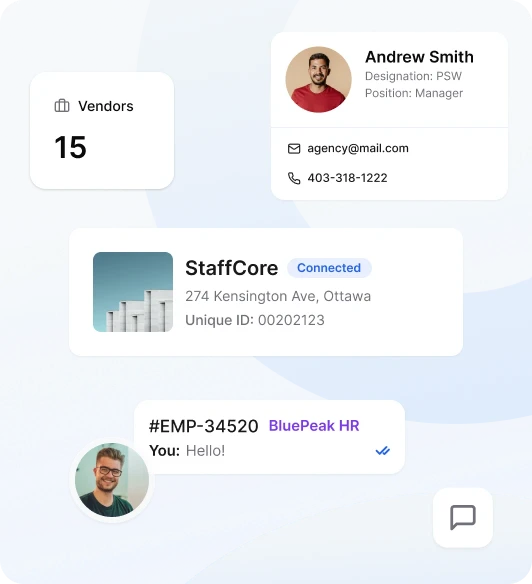
One platform for readiness, visibility, and outcomes.
Bring together requirements, progress, and engagement into a single, connected experience, so readiness is clear, compliance is assured, and outcomes are confidently delivered.
Where Readiness Matters Most
Single readiness platform that brings structure, consistency, and visibility to credentialing, coordination, and compliance across sectors.
 A verified Digital Passport keeps every person’s credentials, training, and checks current and easy to share.Learn more
A verified Digital Passport keeps every person’s credentials, training, and checks current and easy to share.Learn more A verified Digital Passport keeps every person’s credentials, training, and checks current and easy to share.Learn more
A verified Digital Passport keeps every person’s credentials, training, and checks current and easy to share.Learn more A verified Digital Passport keeps every person’s credentials, training, and checklists current and easy to share.Learn more
A verified Digital Passport keeps every person’s credentials, training, and checklists current and easy to share.Learn moreTrust and Security
Trust is earned through integrity, strengthened through transparency, and upheld through protection. When you rely on Occupass to manage sensitive workforce information, we treat that responsibility as foundational.
Every layer of our platform is designed with security, accountability, and disciplined protection to safeguard the records and processes your organization depends on. Your trust is never assumed, it’s earned through the safeguards we build, and maintained through the integrity with which we operate.
Security Commitments:
Still have questions?
Have questions or need assistance? Our team is here to help!
A simple, guided path to launch.
See how the platform brings clarity to your operations. We’ll review your roles, requirements, and workflows to align on what success looks like for your organization.
Set the foundation for confidence and scale. Configure credentials, workflows, and compliance rules to reflect how you work across teams, partners, and locations.
Launch with real-time visibility into readiness, credential status, and compliance so your team can move faster, stay aligned, and make informed decisions from day one.

